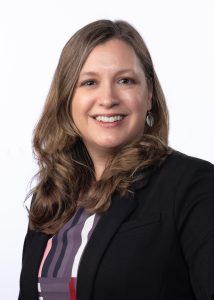August 26th Observatory Public Night
Boldly Going into the Future: Space 2050
By Dr. Christine Edwards
Is the subject of this month’s Estes Valley Astronomical Society (EVAS) meeting. EVAS, in conjunction with The Estes Park Memorial Observatory is offering a free public open house and lecture on Saturday, August 26th, 2023. The goal of EVAS is to promote amateur astronomy and education in the Estes Valley.
Description – What will space exploration and activities look like in the future? The fourth industrial revolution is currently underway, with machine learning and artificial intelligence (AI) technologies making significant advancements and changing industries. The next thirty years will revolutionize our efforts in space and on Earth. We envision fully autonomous deep space exploration, where spacecraft, rovers, and landers decide what to do based on the commander’s intent. Cooperative robotics will enable life-saving operations on Earth, such as autonomous robotic surgery and fire-fighting assistance, and enable lunar surface activities, such as autonomous mining and outpost construction with raw materials. There will be cognitive AI assistants to help the crew with situational awareness, troubleshooting, and decision making. Advances in propulsion will provide faster travel. Furthermore, smart cities will become a reality. Advances in power and infrastructure management will enable better living conditions on Earth, Moon, and Mars. Dr. Christine Edwards will discuss the current developments at Lockheed Martin, the major challenges, and what this innovation path looks like towards making these science fiction scenarios a reality in Space 2050.

Dr. Christine Edwards
Dr. Christine Edwards is a Principal Autonomy/AI Research Engineer and Associate Fellow at the Lockheed Martin Advanced Technology Center (ATC). She specializes in enabling greater autonomy and resilience for missions through systems-of-systems architecting and technology advancement, including AI and human-machine teaming. Currently, she leads the systems engineering development of the Cognitive Mission Manager (CMM), an AI-driven assistant for firefighter operations. Also, she is lead systems engineer for Operations Center of the Future mission management, advancing intelligent systems for space operations. Previous positions include serving as Deputy Chief Systems Architect for Commercial Civil Space (CCS), principal investigator for weather and remote sensing research and development for Advanced Programs, lead systems engineer and associate manager for Mars Reconnaissance Orbiter (MRO) operations, guidance navigation and control (GN&C) operations for the GRAIL, Mars Odyssey, and Stardust missions, launch support for Juno, and autonomous rendezvous, proximity operations, and docking (ARPOD) development for the Orion. She holds a PhD in systems engineering from Stevens Institute of Technology, Bachelor and Master of Science degrees in aerospace engineering from MIT and was recognized by Aviation Week & Space Technology in their 40 under 40 in Aerospace and Defense. For outreach, she performs public speaking engagements about space exploration as a NASA Solar System Ambassador, has led science project programs for K-12 and college levels, and was a Research Associate at the Denver Museum of Nature and Science, including participation in the 2013 Kaiparowits Expedition that was featured in the National Geographic magazine.
The observatory is just north of the high school at 1600 Manford Ave. Park in the teacher’s parking lot adjacent to the observatory. The doors will open at 7:00 pm and the meeting will start at 7:30 pm. The presentation, including a question-and-answer period, lasts about an hour. After the presentation, weather permitting, we will look through the telescope at various celestial objects.
